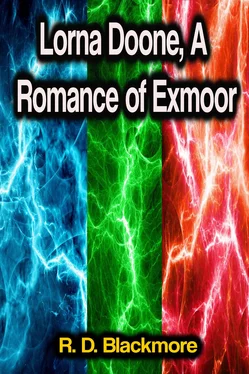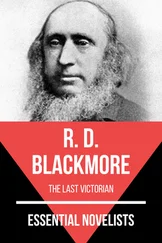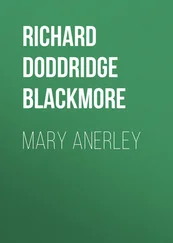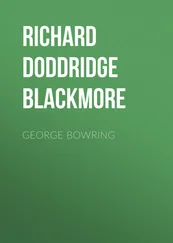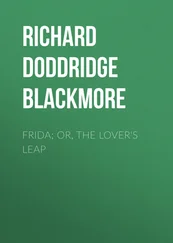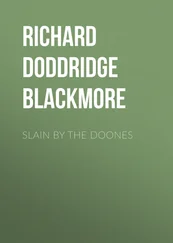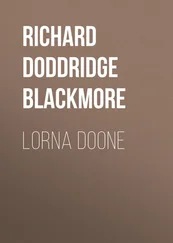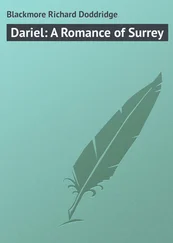Then just as the foremost horseman passed, scarce twenty yards below us, a puff of wind came up the glen, and the fog rolled off before it. And suddenly a strong red light, cast by the cloud-weight downwards, spread like fingers over the moorland, opened the alleys of darkness, and hung on the steel of the riders.
'Dunkery Beacon,' whispered John, so close into my ear, that I felt his lips and teeth ashake; 'dursn't fire it now except to show the Doones way home again, since the naight as they went up and throwed the watchmen atop of it. Why, wutt be 'bout, lad? God's sake—'
For I could keep still no longer, but wriggled away from his arm, and along the little gullet, still going flat on my breast and thighs, until I was under a grey patch of stone, with a fringe of dry fern round it; there I lay, scarce twenty feet above the heads of the riders, and I feared to draw my breath, though prone to do it with wonder.
For now the beacon was rushing up, in a fiery storm to heaven, and the form of its flame came and went in the folds, and the heavy sky was hovering. All around it was hung with red, deep in twisted columns, and then a giant beard of fire streamed throughout the darkness. The sullen hills were flanked with light, and the valleys chined with shadow, and all the sombrous moors between awoke in furrowed anger.
But most of all the flinging fire leaped into the rocky mouth of the glen below me, where the horsemen passed in silence, scarcely deigning to look round. Heavy men and large of stature, reckless how they bore their guns, or how they sate their horses, with leathern jerkins, and long boots, and iron plates on breast and head, plunder heaped behind their saddles, and flagons slung in front of them; I counted more than thirty pass, like clouds upon red sunset. Some had carcasses of sheep swinging with their skins on, others had deer, and one had a child flung across his saddle-bow. Whether the child were dead, or alive, was more than I could tell, only it hung head downwards there, and must take the chance of it. They had got the child, a very young one, for the sake of the dress, no doubt, which they could not stop to pull off from it; for the dress shone bright, where the fire struck it, as if with gold and jewels. I longed in my heart to know most sadly what they would do with the little thing, and whether they would eat it.
It touched me so to see that child, a prey among those vultures, that in my foolish rage and burning I stood up and shouted to them leaping on a rock, and raving out of all possession. Two of them turned round, and one set his carbine at me, but the other said it was but a pixie, and bade him keep his powder. Little they knew, and less thought I, that the pixie then before them would dance their castle down one day.
John Fry, who in the spring of fright had brought himself down from Smiler's side, as if he were dipped in oil, now came up to me, all risk being over, cross, and stiff, and aching sorely from his wet couch of heather.
'Small thanks to thee, Jan, as my new waife bain't a widder. And who be you to zupport of her, and her son, if she have one? Zarve thee right if I was to chuck thee down into the Doone-track. Zim thee'll come to un, zooner or later, if this be the zample of thee.'
And that was all he had to say, instead of thanking God! For if ever born man was in a fright, and ready to thank God for anything, the name of that man was John Fry not more than five minutes agone.
However, I answered nothing at all, except to be ashamed of myself; and soon we found Peggy and Smiler in company, well embarked on the homeward road, and victualling where the grass was good. Right glad they were to see us again—not for the pleasure of carrying, but because a horse (like a woman) lacks, and is better without, self-reliance.
My father never came to meet us, at either side of the telling-house, neither at the crooked post, nor even at home-linhay although the dogs kept such a noise that he must have heard us. Home-side of the linhay, and under the ashen hedge-row, where father taught me to catch blackbirds, all at once my heart went down, and all my breast was hollow. There was not even the lanthorn light on the peg against the cow's house, and nobody said 'Hold your noise!' to the dogs, or shouted 'Here our Jack is!'
I looked at the posts of the gate, in the dark, because they were tall, like father, and then at the door of the harness-room, where he used to smoke his pipe and sing. Then I thought he had guests perhaps—people lost upon the moors—whom he could not leave unkindly, even for his son's sake. And yet about that I was jealous, and ready to be vexed with him, when he should begin to make much of me. And I felt in my pocket for the new pipe which I had brought him from Tiverton, and said to myself, 'He shall not have it until to-morrow morning.'
Woe is me! I cannot tell. How I knew I know not now—only that I slunk away, without a tear, or thought of weeping, and hid me in a saw-pit. There the timber, over-head, came like streaks across me; and all I wanted was to lack, and none to tell me anything.
By-and-by, a noise came down, as of woman's weeping; and there my mother and sister were, choking and holding together. Although they were my dearest loves, I could not bear to look at them, until they seemed to want my help, and put their hands before their eyes.

Chapter 4. A Very Rash Visit
My dear father had been killed by the Doones of Bagworthy, while riding home from Porlock market, on the Saturday evening. With him were six brother-farmers, all of them very sober; for father would have no company with any man who went beyond half a gallon of beer, or a single gallon of cider. The robbers had no grudge against him; for he had never flouted them, neither made overmuch of outcry, because they robbed other people. For he was a man of such strict honesty, and due parish feeling, that he knew it to be every man's own business to defend himself and his goods; unless he belonged to our parish, and then we must look after him.
These seven good farmers were jogging along, helping one another in the troubles of the road, and singing goodly hymns and songs to keep their courage moving, when suddenly a horseman stopped in the starlight full across them.
By dress and arms they knew him well, and by his size and stature, shown against the glimmer of the evening star; and though he seemed one man to seven, it was in truth one man to one. Of the six who had been singing songs and psalms about the power of God, and their own regeneration—such psalms as went the round, in those days, of the public-houses—there was not one but pulled out his money, and sang small beer to a Doone.
But father had been used to think that any man who was comfortable inside his own coat and waistcoat deserved to have no other set, unless he would strike a blow for them. And so, while his gossips doffed their hats, and shook with what was left of them, he set his staff above his head, and rode at the Doone robber. With a trick of his horse, the wild man escaped the sudden onset, although it must have amazed him sadly that any durst resist him. Then when Smiler was carried away with the dash and the weight of my father (not being brought up to battle, nor used to turn, save in plough harness), the outlaw whistled upon his thumb, and plundered the rest of the yeoman. But father, drawing at Smiler's head, to try to come back and help them, was in the midst of a dozen men, who seemed to come out of a turf-rick, some on horse, and some a-foot. Nevertheless, he smote lustily, so far as he could see; and being of great size and strength, and his blood well up, they had no easy job with him. With the play of his wrist, he cracked three or four crowns, being always famous at single-stick; until the rest drew their horses away, and he thought that he was master, and would tell his wife about it.
Читать дальше
